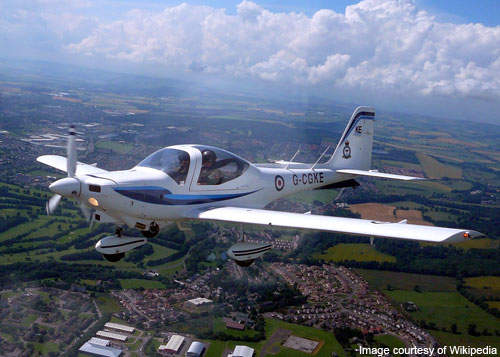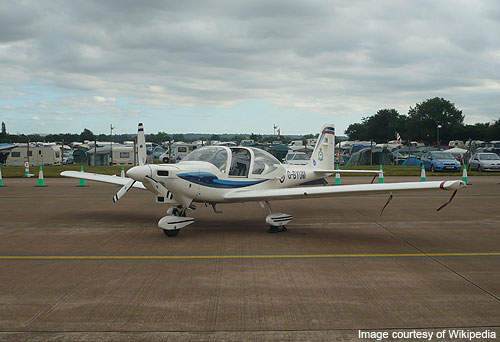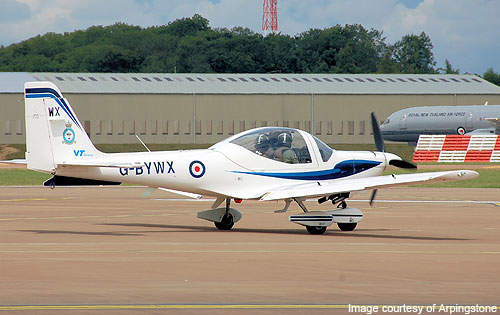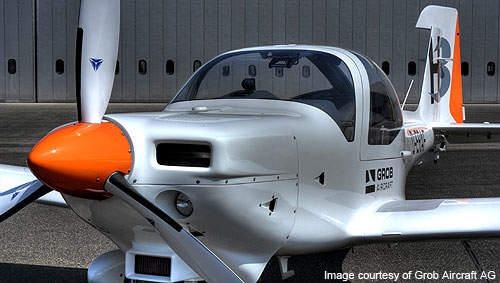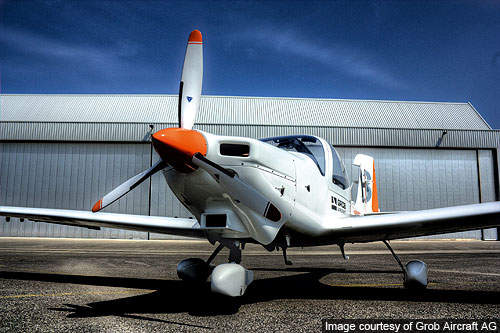
A single engine basic trainer aircraft, the G115E is designed and manufactured by Grob Aircraft (formerly known as Grob Aerospace) of Germany. It was built to replace the Scottish Aviation Bulldog T1 aircraft.
A total of 360 G115Es are operational with seven customers worldwide.
The G115E is owned and operated by Babcock on behalf of the UK Ministry of Defence who renamed the aircraft Tutor. In May 2011 Babcock contracted Lees Avionics to overhaul its 93 G115E trainers. The TAS600 traffic advisory system and horizontal situational indicator (HSI) was installed in the aircraft as part of the contract.
G115E training aircraft orders and deliveries
The G115E orders received from various customers include:
- Royal Air Force (117)
- Royal Navy (five)
- Tayside Aviation (five)
- Egyptian Air Force (74)
- Adelaide Flight Training Centre (nine)
- Australian Flying School (eight)
- China Southern West Australian Flying College (38)
- UAE Air Force (12)
- Norwegian Aviation College (four)
- Ostende Aviation College (three)
- Aeroclub Keiheuvel (one).
Design
The G115E is of semi-monocoque design. It was designed to execute pilot screening, elementary flight training (EFT) and aerobatics manoeuvres throughout the UK. The robust landing gear design allowed the aircraft to accomplish harsh training even in the worst climatic conditions.
The aircraft was designed to execute VFR training during day or night and IFR training in non-icing conditions.
Development
The development of G115 began in the 1980s to meet the flight training requirements of the RAF University Air Squadrons (UAS) and Air Experience Flights (AEF). The aircraft was built based on its predecessor G112’s prototype.
The maiden flight of the G115 took place in November 1985 and the aircraft entered service in 1999. Production of the G115 was suspended in 1990. The development of G115E began in 1992. The G115E deployed after the RAF accomplished 250,000 flying hours in February 2007.
VT-Group procured G115E in February 2009. VT-Aerospace acquired 20 G115E trainers from Grob Aircraft in April 2009 at a cost of €10m.
The RAF awarded a contract to Avidyne Corporation in November 2010 to supply 119 TAS600 traffic advisory systems, as well as spare parts for deployment in the G115E aircraft. Babcock International will install the traffic advisory system in the G115E by 2012.
The 14 and 12 G115Es procured respectively by UAS and AFT are deployed for elementary flight training. The Central Flying School has deployed the G115Es to execute weapon system officer training at the RAF College Cranwell.
Features
The G115E features a robust and corrosion-resistant all-composite airframe made up of carbon composite materials. It is equipped with a fixed tricycle landing gear, empennage, battery switch, ignition switch, stop watch, static selector, lighting panel, mute switch and parking brake.
Cockpit
The spacious cockpit of the G115E is fitted with two side by side seats for pilot and student. The seats can be conformed through squab cushions and flexible rudder pedals. The large glass canopy renders all round clear visibility to the crew.
The primary flight controls and switches are integrated to the right side of the cockpit to fly the aircraft with a right hand stick and a left hand throttle, which enables to transit easily to fast jet aircraft.
The cockpit is equipped with rate of climb indicator, air speed indicator, attitude indicator, altimeter, voiceover recorder, distance measuring equipment, engine RPM gauge, instrument landing system and cockpit heading controls.
It also houses communication and navigation systems encompassing differential global positioning system, UHF and VHF radios, standby compass, navigation director, warning panel, communications selector, SSR transponder and inertial navigation system.
Engines
The Grob G115E is powered by a single Lycoming AEIO-360-B1F/B piston engine that produces 139kW of output power. The engine is designed and manufactured by Textron Lycoming Engines, US. It is a four-cylinder air-cooled engine driven by a three-bladed constant speed MT propeller made up of aluminium.
The engine is equipped with UREM38E spark plug, starter, fuel injector, fuel pump, vacuum pump drive and oil filter. The time between overhaul of the engine is 2,000 hours.
Performance
The G115E can climb at the rate of 5.3m/s. The maximum and cruise speeds of the aircraft are 343km/h and 230km/h respectively. The stall speed is 96km/h. The range and service ceiling are 1,150km and 3,050m respectively.
The take-off distance is 461m, while the landing distance is 457m. The aircraft can loiter in the air for a maximum of 6.2 hours. The aircraft weighs around 685kg and its maximum take-off weight is 990kg.

